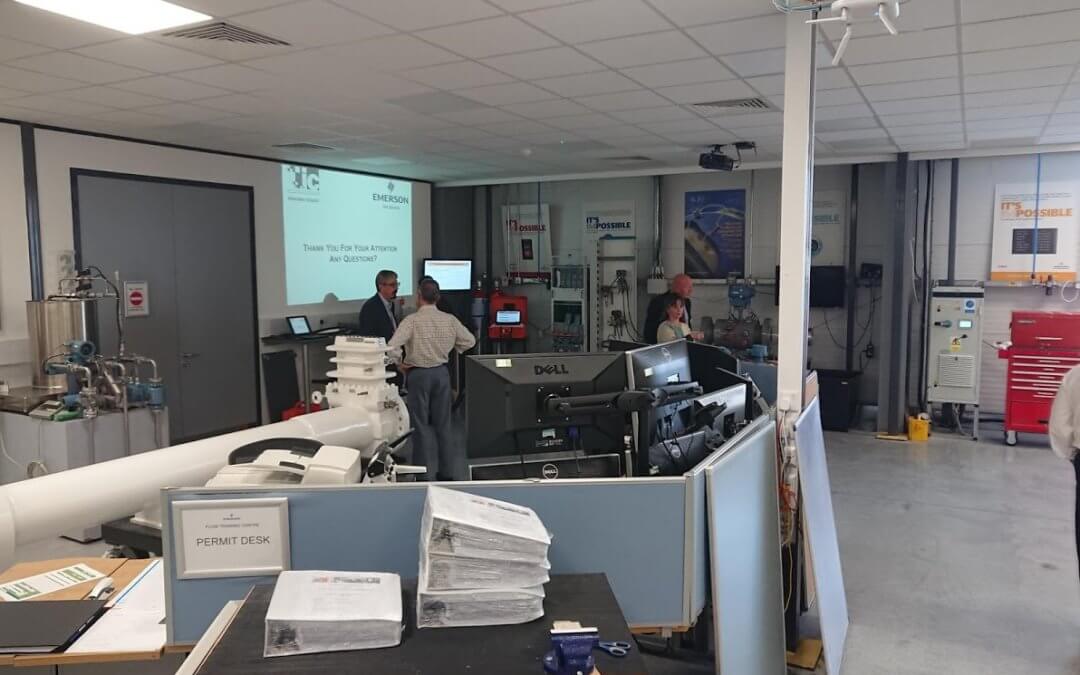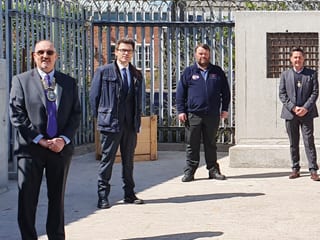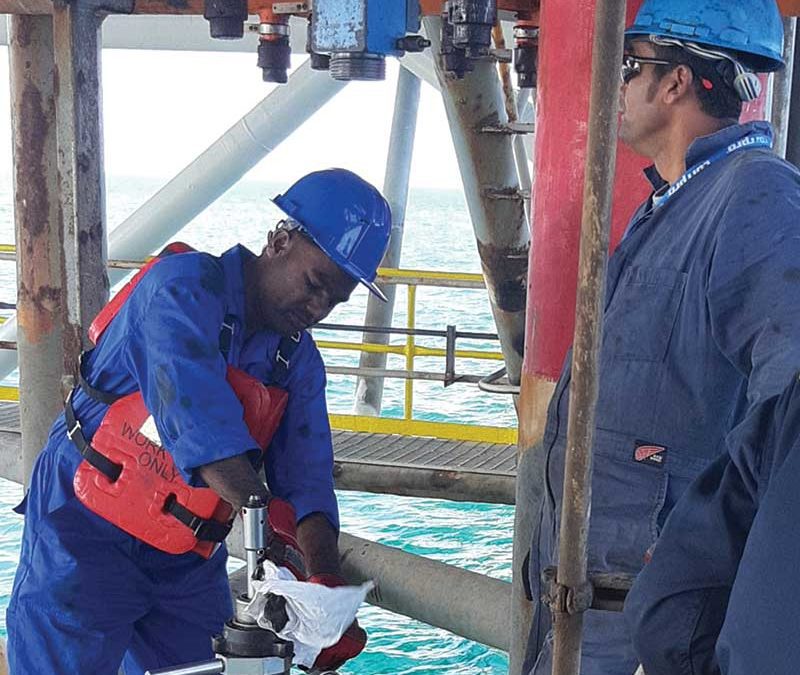Certification to Support and Enhance Your CP Career
A career in cathodic protection can be developed with an employer or as a self-employed contractor. The work is interesting, often challenging, and well paid. As industry around the world seeks to combat the environmental, safety, and financial impact of corrosion, a career in this specialisation is supported by high demand for skilled operatives at all levels.
Specialising in cathodic protection offers a career path that could take you around the world, working for diverse companies in locations that stretch from pole to pole. As you climb the career ladder – possibly to establish your own company or, perhaps, as a senior lecturer in university – your career growth must be supported by additional qualifications and certification.
In fact, the structure of ICorr’s Certification Scheme for Cathodic Protection Personnel is designed to be an enabler of career progression in this specialisation. Effectively, your career advancement can be charted by each level of certification.
Starting out – Cathodic Protection Data Collector/Tester (Level 1)
As a starter in the industry, you don’t yet have any experience in cathodic protection.
The role of data collector or cathodic protection tester is likely to be combined with other duties. For example, as an electrical .
To be classed as competent for cathodic protection data collection and testing, you will need to be certified as a Level 1 Tester/Data Collector. This is the course intended for very new entrants to the CP industry. It’s also appropriate for staff who, on a part-time basis, collect and test as part of a wider job description.
Next step – Cathodic Protection Technician (Level 2)
As you gain experience, your role will expand. To take the next step, you will need to be certified as a Level 2 Technician. You will be responsible for testing and evaluation of cathodic protection systems and data. Your technical knowledge will include different CP systems, anode types, corrosion theory, reference electrodes, corrosion prevention, and an understanding of how CP works at a scientific level.
You might undertake work with specific instruction from senior staff with higher certification levels. You may also help prepare reports and make corrections to systems as approved by supervising staff.
This is a big step up from the duties of a data collector/tester, though you don’t need any specific experience in cathodic protection to take the course that certifies your competency to perform this role. However, before being certified as a Level 2 Technician [i.e. after the course and successful examination] you will require to have a minimum of one year of approved experience.
Supervisory roles – Senior Cathodic Protection Technician (Level 3)
At this stage of your career, you will now be expected to supervise lower-level staff in their cathodic protection work. Your knowledge bank will be substantial, and your duties may include:
- Instructing work crews on the installation of cathodic protection systems, and maintenance.
- Inspecting technician surveys and written documentation
- Inspecting contractor procedures for corrosion compliance
- Identifying problems and determining corrective action
- Testing existing CP systems
- Overseeing and instructing corrosion team members and CP technicians in corrosion-related requirements
You may also be required to provide feedback and training to other employees, and help to maintain safety standards. You could be responsible for reviewing, maintaining, and updating records, ensuring data integrity and adherence to controls, practices, and policies.
There are several ways in which you may be qualified to take the Level 3 Senior Technician Course and examination:
- You should have at least six years’ experience (less, if suitably academically qualified)
- You must hold Level 2 Cathodic Protection Technician Certification for the applicable sector in which you will be working
Or:
- You should have at least one year’s experience and have attended the Level 2 training course to satisfy the educational and experience requirements to qualify for the Level 3 training course and examination.
Experienced senior roles – Cathodic Protection Specialist (Level 4)
Your career has led you to senior and management roles. At this level, you will be designing CP systems and providing technical expertise and guidance to others – such as those working in operations and engineering – to enable efficient and effective implementation, monitoring, and troubleshooting of cathodic protection assets.
Your experience is likely to include subjects and tasks such as:
- Corrosion control regulations
- Assessment and repair of pipeline defects
- Technical support, training, and evaluation of corrosion technicians
- Working knowledge of corrosion control databases and field data collection devices
- Ability to consistently analyse and resolve corrosion control issues involving multiple components, personnel, and operations
Currently there is no course for this level of certification. You will, however, need to demonstrate your experience and expertise when applying for certification as a Level 4 Cathodic Protection Specialist as follows:
- If progressing from Level 3, you will need three to eight years’ experience
- If applying directly, you will need five to 12 years’ experience
- Examination is required
- You will need to supply evidence of work (including detailed complex design)
- Validation by two referees is also required
The pinnacle of your career – Level 5 Cathodic Protection Expert
To achieve this level of certification, you must already be certified at level 4 in the same sector. You will have advanced the state of CP by scientific work, and have a broad understanding (at least) of all other sectors of CP.
It is likely that you will have published peer-reviewed papers, and have an established reputation in at least one sector within the industry.
This is not presently recognised/offered in the UK and many believe it to be an honorary title. However, BS EN ISO 15257 states that there are activities that a Level 5 is competent to undertake that a Level 4 is not.
ICorr – Leading the way in CP career development through certification
A career in cathodic protection has much to offer. You’ll work on diverse projects, with the opportunity to work in all four corners of the globe. With a high demand for your skills and experience, you should never be short of rewarding opportunities to advance your career.
To maximise the benefits of a career in CP, you should gain certification as you progress. We have developed CP certification to an internationally recognised standard (ISO 1527:2017). Your certification validates that you have the minimum skills, knowledge, and experience to be certified as competent across all the disciplines within the CP field, including survey, design, installation, testing, maintenance, and the science of cathodic protection, at each successive rung of the career ladder.
At each level as detailed above, you must apply to the Institute of Corrosion for certification. Successfully completing the course and passing the exam is not enough on its own.
In our next article discussing cathodic protection courses, examination, and certification, we examine how the CP courses are delivered.
In the meantime, to learn more about our ground-breaking CP Certification Scheme and our comprehensive Cathodic Protection Certification Courses – and discuss which is right for you – email the Institute of Corrosion at admin@icorr.org.





